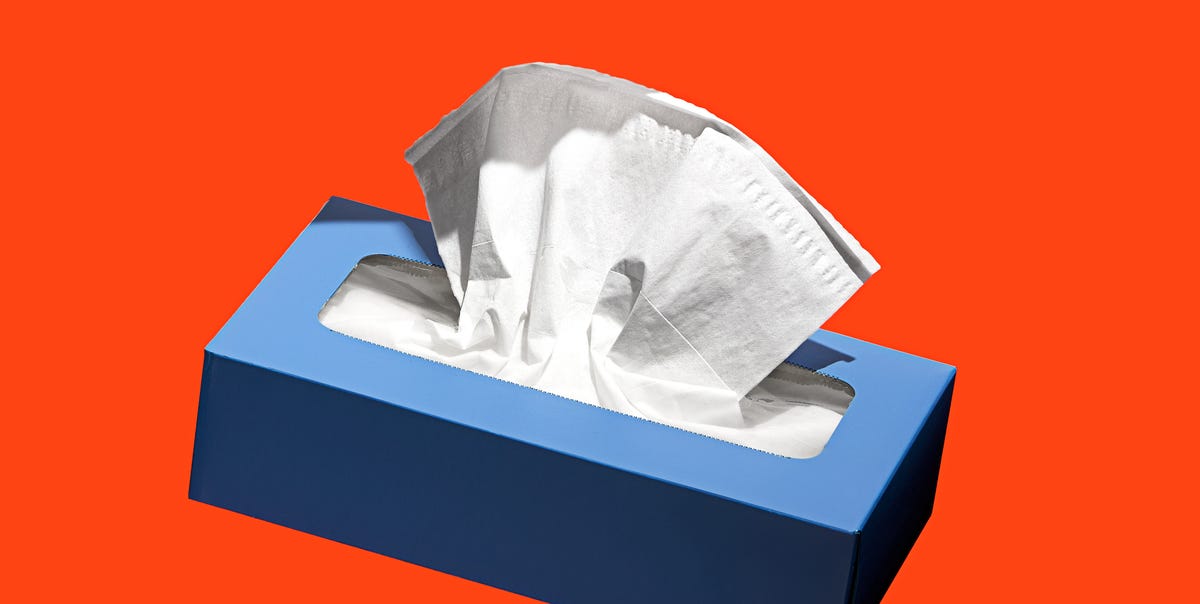When you’re stuffed up and struggling to breathe normally, it can feel like you’ll never feel better. That’s where over-the-counter (OTC) cold medications like Dayquil, Mucinex, Sudafed, and more can come in super handy. But doctors say certain OTC decongestants perform better than others for clearing your nose and sinuses.
Not all decongestants are created equal, and there’s one ingredient in particular that is known—in the medical community, at least—for being ineffective. The problem is, the rest of us haven’t necessarily gotten the message.
It’s called phenylephrine, and it’s found in a lot of over-the-counter decongestant medications. There’s a lot of chatter on social media about phenylephrine right now, with some TikTok users in the medical community declaring it basically useless for decongestion.
While some doctors say that’s a bit of an exaggeration, many note that you usually have better options if you’re stuffed up. With that in mind, here’s the deal with what we know about phenylephrine—plus what to reach for when you have congestion issues for the most promising and immediate relief.
Meet the experts: Kelly Johnson-Arbor, MD is a toxicologist at MedStar Health. Jamie Alan, PhD is an associate professor of pharmacology and toxicology at Michigan State University. Purvi Parikh, MD, an allergist with Allergy & Asthma Network. Linda N. Lee, MD, is an assistant professor of Otolaryngology–Head and Neck Surgery at Harvard Medical School and an otolaryngologist at Massachusetts Eye and Ear
First, let’s go over the basics about nasal congestion.
Your nose has things called turbinates, which are bony structures in the nasal passages that have mucus membranes and help with filtering and humidifying the air that you breathe in, making it feel comfortable, explains Linda N. Lee, MD, an assistant professor of Otolaryngology–Head and Neck Surgery at Harvard Medical School and an otolaryngologist at Massachusetts Eye and Ear.
“When you are sick, these turbinates get inflamed, swollen, and make increased mucus,” Dr. Lee says. That’s where the class of medications known as nasal decongestants—which includes both phenylephrine and pseudoephedrine—come in. “Nasal decongestants target these turbinates and try to make them less swollen or make less mucus.”
The Phenylephrine Vs. Pseudoephedrine Debate, Explained
While pseudoephedrine and phenylephrine are both nasal decongestants, they work in your body in different ways, says Purvi Parikh, MD, an allergist with the Allergy & Asthma Network.
Phenylephrine is what’s known as a vasoconstrictor (meaning: it causes blood vessels to narrow), Dr. Parikh says. It works on receptors in your body known as alpha adrenergic receptors to narrow those blood vessels and ultimately tamp down inflammation.
As for pseudoephedrine, “this substance is a vasoconstrictor that works on both alpha and beta adrenergic receptors,” Dr. Parikh says. Meaning: Pseudoephedrine does a little more by targeting more blood vessels. “Studies have shown phenylephrine is not very effective as a nasal decongestant—but pseudoephedrine can be,” Dr. Parikh adds.
Another big difference between the two medications: Phenylephrine can be found over the counter while pseudoephedrine is kept behind the counter. Why? Pseudophedrine is commonly used to make the highly addictive stimulant methamphetamine, commonly known as meth.
In 2006, the Combat Methamphetamine Epidemic Act was signed into law. This law bans sales of OTC cold medicines with pseudoephedrine, limits the amount of pseudoephedrine that a person can buy in a month, and requires you to show a photo ID to buy meds containing pseudoephedrine—all in an effort to control the illegal production of meth.
Something else to keep in mind, according to Dr. Lee: Pseudoephedrine can cause you to have an increased heart rate and jittery feeling, while phenylephrine usually will give you less of that hyped-up feeling.
Why Phenylefrine Isn’t The Best Decongestant
There are a few different reasons at play. To start, “phenylephrine is metabolized more quickly [than pseudoephedrine], [so] it can be less effective for nasal decongestion than pseudoephedrine,” Dr. Lee says.
That’s a big issue, agrees Kelly Johnson-Arbor, MD, a toxicologist at MedStar Health. “Oral phenylephrine is broken down by the body before it’s absorbed into the bloodstream, which limits the effectiveness of its active ingredient,” she says. Pseudoephedrine, in comparison, is “able to be absorbed by the body more effectively than phenylephrine,” Dr. Johnson-Arbor adds.
So…why is it still in so many over-the-counter cold medications?
Great question! There are a few reasons for this. The first goes back to the regulation of pseudoephedrine purchases due to its use in illicit meth production. Phenylephrine is simply quicker and easier to buy, experts note.
Right now, phenylephrine “is the only non-restricted agent available at this time that will relieve congestion,” says Jamie Alan, PhD, an associate professor of pharmacology and toxicology at Michigan State University. A “non-restricted agent” means that it’s able to be out in the pharmacy—and not behind the counter where a pharmacist needs to help you obtain it, Alan adds.
The other reason: Phenylephrine is technically approved by the Food and Drug Administration (FDA) as a decongestant—even though the organization has acknowledged that the medication is really not that great. “Phenylephrine was initially approved by the FDA as a nasal decongestant in the 1970s,” Dr. Johnson-Arbor says. But this approval was not based on the results of evidence-based clinical trials, but instead stemmed from reports from pharmaceutical companies that described the effectiveness of the drug, she explains.
Because of this initial approval, oral phenylephrine has stayed in a range of OTC cough and cold medications for nearly 50 years—“even though there are minimal data supporting its effectiveness as an oral decongestant,” Dr. Johnson-Arbor says.
In 2023, after a committee meeting to discuss new data on the effectiveness of oral phenylephrine, the FDA formally acknowledged that phenylephrine isn’t effective as an oral decongestant. “Many retailers stopped selling products that contained oral phenylephrine because of this,” Dr. Johnson-Arbor says.
There are also nasal spray formulations of phenylephrine available (like Neo-Synephrine) that are more effective than their oral counterparts because it’s not metabolized by the nose, Dr. Johnson-Arbor notes.
What To Buy For Congestion Relief That Really Works
If you’re struggling with congestion, it may actually be better to use a steroid nasal spray. “I actually recommend nasal steroid sprays like Flonase, Nasacort, Rhinocort or Nasonex; or nasal antihistamine sprays like Astepro, as well as antihistamine tablets like Zyrtec, Claritin, Allegra, and Xyzal,” Dr. Parikh says. “These medicines actually treat the inflammation and reduce the congestion over time, whereas pseudoephedrine temporarily opens you up, but actually can make your congestion worse over time if you use it chronically.”
Antihistamines, for instance, actually reduce histamine released by your allergy or mast cells in your nose, while nasal steroids reduce inflammation head on, Dr. Parikh explains. But pseudoephedrine, on the other hand, only temporarily constricts blood vessels to reduce symptoms but doesn’t address the underlying problem, she says.
That doesn’t mean you shouldn’t also use pseudoephedrine in addition to nasal steroid sprays or nasal antihistamine sprays, but it’s best to limit pseudoephedrine use to a short-term period. Dr. Parikh specifically recommends that you take it “no more than five days, as after that it has a rebound effect and can make nasal congestion worse.”
There are a few non-medicated OTC options that can help with congestion issues too. “Saline spray is super safe and great to try when you have a cold,” Dr. Lee says. She also suggests sleeping with your head elevated to help reduce swelling in your turbinates.
And, of course, if you’re struggling with congestion and can’t get relief, call your doctor, who can offer personalized guidance from there.
Korin Miller is a freelance writer specializing in general wellness, sexual health and relationships, and lifestyle trends, with work appearing in Men’s Health, Women’s Health, Self, Glamour, and more. She has a master’s degree from American University, lives by the beach, and hopes to own a teacup pig and taco truck one day.
Read the full article here




